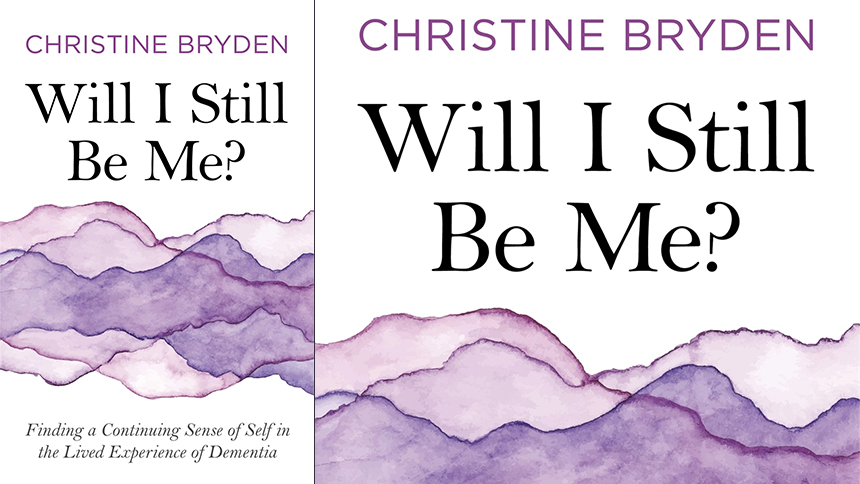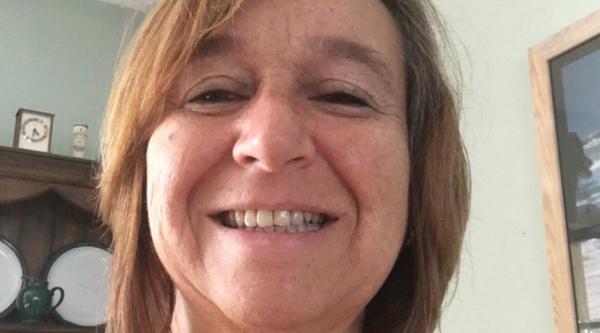Book group: Will I still be me?
We hear what readers thought of Christine Bryden’s latest book, about what a dementia diagnosis means for a person’s sense of self.

Christine Bryden’s first book was published three years after she was diagnosed, in her forties, with dementia. Her most recent – Will I still be me? – sets out to challenge assumptions about identity and selfhood in dementia.
Caroline Branney, who manages our Dementia Knowledge Centre, says, ‘Christine disagrees with people looking at dementia from an “outside” perspective when they talk about the loss of self, often with many underlying assumptions. We tend to value autonomy, competence and intelligence, and often devalue people who might not be able to demonstrate these.
‘Views of loss of self in dementia lead to stigma, isolation and fear for the future, so that people are even fearful of seeking a diagnosis.’
Keith Oliver, a Society Ambassador living with Alzheimer’s, helped us to get the views of fellow members of the Forget Me Nots group in Kent.
Chris says, ‘As a person living with dementia and having started reading the book, I initially had my doubts about what was being outlined. Although endeavouring to focus on the things I can still do, I believed that my dementia was diminishing me. I am losing skills that I have had for most of my conscious life.
‘However, I have read the book twice through now and in doing so, I have come to realise that, although I am changing, my basic moral values and beliefs still remain. An alteration of my abilities or change of behaviour may exist, but my awareness of my existence (called “self” by the author) still remains.’
Revealing
Keith says, ‘Having read and gained much benefit from Christine’s earlier books, I eagerly began to read her latest. The title accurately conveys the book’s key themes which I found introspective and revealing, if at times very challenging.
‘I liked her method of combining her experience and views alongside the case studies, which support the book’s balanced key messages around one’s sense of self.’
‘There are metaphors that make me smile and think! It’s an uplifting and realistic book,’ says David.
David appreciated the book’s tone and structure. He says, ‘Gathering the experiences of others from various backgrounds and their reflections, and the optimism rather than purely pessimism of change – the book is written with skill and insight. There are metaphors that make me smile and think! It’s an uplifting and realistic book.’
Nigel says, ‘This is an appealing read for people on a dementia journey, as it makes the case that the sense of self remains throughout. It is well argued and Bryden provides anecdotal evidence in support of her case.
‘She is an inspiration in her continuing career, writing autobiographically to inform those on the journey and their caregivers, and to provide hope and positive encouragement. A good read for all those touched by dementia.’
Tenacity
Keith says, ‘I admire Christine’s tenacity and academic acumen, which despite living with dementia for 23 years, remain evident and are inspiring for those of us who also live with this wretched disease. A must-read for health professionals working in this field.’
Carol, another Forget Me Nots member, found the book’s language too off-putting. ‘While excited to review this book, after reading the first chapter I realised it was going to be extremely difficult,’ she says.
‘I have early onset Alzheimer’s and was not surprised by this, as I struggle with language. I struggled with the academic words and phrases so felt I had to give up reading the book, as I couldn’t understand what the author was saying.’
Elizabeth, an older people’s mental health professional, thinks it’s well worth sticking with despite this.
‘This book is not an easy read,’ she says, ‘with frequent citations interrupting the flow of text. However, she raises many important points and highlights the necessity and value of communities including people. This encourages us to continue connecting and relating to people living with dementia, valuing the present moment.’
‘She has re-instilled in me a sense of worth and value as a member of the human race,’ says Chris.
Chris says, ‘The book clearly outlines that, just because we may lose the ability to do things or our cognition is impaired, it does not lessen our right to exist and be acknowledged for the living person that we are.
‘Christine argues her points clearly as an “insider” living with dementia looking out. By reading her book, she has re-instilled in me a sense of worth and value as a member of the human race.’
Will I still be me? by Christine Bryden (Jessica Kingsley, 2018), 144 pages, £12.99, ISBN: 9781785925559.
Your turn
We invite you to read Extreme caring: You have to go on by Stuart Donnan (DestinWorld, 2016), 252 pages, £9.99, ISBN: 9780995530706.
Let us know what you think about this personal account – of the author caring for his wife after her stroke and later diagnosis of dementia – by 4 March 2019 so we can share it in our next magazine.


